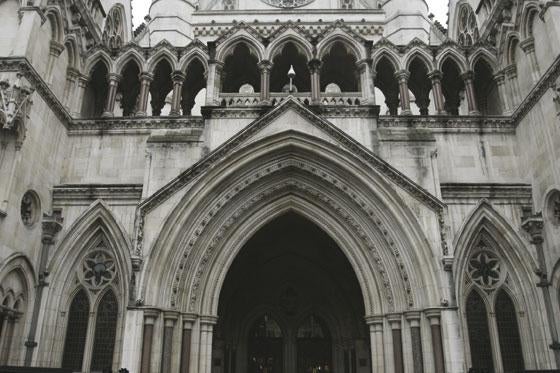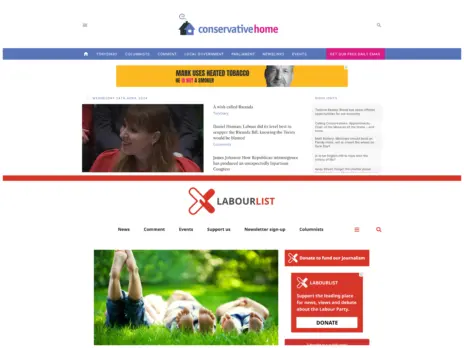
An individual who became involved in court proceedings over the risk of toxic materials leaching out of a paint used to coat drinking water tanks was silenced by a “hyper-injunction” which even banned him from talking to an MP, it has emerged.
Liberal democrat MP John Hemming used the protection of Parliamentary privilege during an adjournment debate on the Bill of Rights at Westminster Hall on Thursday last week to make the disclosure.
Hemming told MPs that, even if there was no Bill of Rights, which protects Parliamentary privilege, it was clear that there were circumstances in which it would be lawful for people to communicate with Members of Parliament.
“There are other situations, when there are court injunctions or other pressures on people through employment contracts and the like, when it perhaps is not as lawful for people to communicate with their Member of Parliament,” he said.
“I am particularly concerned about situations in which people are bullied and threatened to prevent them from raising their grievances with their Member of Parliament, and there is obviously a question as to where the limits of that lie.”
MPs had freedom of speech in the House on behalf of the citizens, Hemming said, adding: “We need to know of grievances so that we can raise them and talk about them publicly, so that the citizens of the UK can know.”
But that freedom could not be used is people were gagged from speaking to their MPs.
Hemming said the “hyper-injunction” was from a case in 2005, and said anyone who disobeyed it could be found guilty of contempt and fined, jailed or have their assets seized.
He went on: “Paragraph one of the document concerned states: ‘Neither the Defendant nor any third party with notice of the Injunction may communicate with any third party regarding these proceedings in general and the potable water tanks or system referred to in the Injunction in particular’.”
It then went on to ban the defendant or any third party from communicating with specific people or categories of people, including the owners or operators of ships, the United States Coastguard or any other coastguard or similar organisation, MPs, journalists, and lawyers, except lawyers instructed to help the defence of the proceedings.
The ban covered information about the proceedings, including their existence, the terms of the injunction, the fact that specific drinking water tanks were re-coated, and the fact that the drinking water tanks of other vessels had also been re-coated.
The prohibition also covered anything the defendant had learned about the specific water tanks, or tanks on other vessels, during the proceedings, and any speculation that the illness of anyone, including a specified individual, was brought about the chemicals in the water tank coating.
Hemming said: “There is a lot of stuff in that. It goes beyond a super-injunction; it is what I would call a hyper-injunction.”
He went on: “I believe that the person concerned got a two-week suspended sentence for talking to a lawyer about whether he could have it on a no win, no fee basis. So there is a real question about whether he can get a fair trial on this basis.
“One of the things to which he is not supposed to refer is the fact that in the potable or drinking water tanks of these vessels, the paint was defective.
‘In certain circumstances, the coating could break down and release small quantities of a toxic substance into the water contained in the tanks.
“What we have, therefore, is passenger vessels trundling around the world with potentially toxic substances being released into the tanks, although to be fair, the problem with the coating in the tanks is being fixed; but one of those who worked on the tanks collapsed as a result.
‘We also know that the situation continued. The reason why I have not named people is simple: I do not know the nature of the toxins or whether they are serious, and they might not be.
“However, I am greatly worried about transparency, and I might pass these details to a Committee of the House, if there is one that wishes to look at them.
‘From a health and safety point of view, we want to think that the water we are drinking is safe and that it will not cause health problems; the difficulty in this case is that we do not know.
“What we do know is that corporations used the massive force of the law to gag an individual and truss him up so much that he could not really challenge the process.”
Conservative MP Richard Bacon interrupted to say that what Hemming had said was “quite extraordinary”, adding: “How can a judge feel it appropriate to make an order making it unlawful – supposedly – to refer to the existence of proceedings?”
Hemming went on: “The person in question could actually be jailed for telling his MP that he had been in court case No. 773.
‘What is so sensitive about that? In practice, even family court proceedings are not that confidential. I think this case was in the Commercial and Admiralty court.
“My first question is … How does this happen? How many more of these cases are there? How many secret cases do we have in this country, with people being banned from even saying that the case exists?”
The Master of the Rolls, Lord Neuberger had said recently that super-injunctions were dubious, although there was an argument for a temporary super-injunction on occasion in a fraud case so that money can be chased around the world, Hemming said.
But it was “complete nonsense” to have something that was still in force almost five years later and whose existence could not even be mentioned outside Parliamentary proceedings.
“This is not the sort of thing that should happen. This is not about transparency and accountability, but about using lots of money. We come back to Magna Carta and somebody with a lot of money,’he said.
“We are talking about various companies with lots of money gagging some poor individual. Where is the equality of arms in that? Where is the idea that we will not sell justice?
‘The courts may not be selling justice, but the legal process as a whole is not really very balanced if this is the sort of thing that goes on.”
Hemming’s latest disclosures follow his move on March 10 to unmask former RBS chief Sir Fred Goodwin as the individual who had obtained a super-injunction banning the media from mentioning that he was a banker.
The row followed the outcry in 2009 over a super-injunction obtained by oil trading group Trafigura which was said to have banned the Guardian from reporting Parliamentary questions tabled by Labour MP Paul Farrelly.
Email pged@pressgazette.co.uk to point out mistakes, provide story tips or send in a letter for publication on our "Letters Page" blog






